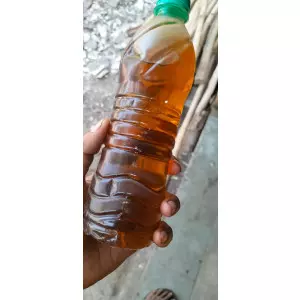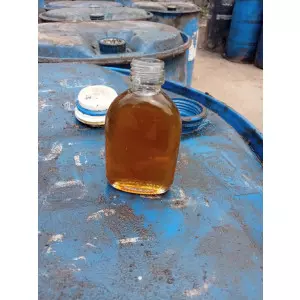- Home
- About Us
- Products
- RUHANI INDUSTRIES PRODUCT LIST
- Automotive Lubricating Oil
- Automotive Grease
- Automotive Coolant
- Industrial Oils & Greases
- Industrial Aromatic Solvents
- Base Oil (Recycled)
- Paraffin Oil
- Glycols
- Industrial Fuel Oil
- Bitumen
- Industrial Wax
- Petroleum Jelly
- Paraffin Wax
- Lubricant Oil Cutting Oil And Coolant Additives
- Diesel Engine Oil Additive Package -CH4/CF4/CI4
- Gasoline Engine Oil Additive Package – SF/SL/SM/SN
- Anti-Wear Hydraulic Oil Additive Package
- Automatic Transmission Oil Additive Package
- Industrial Gear Oil Additive Package
- Tractor Transmission Package
- TBN 400 Synthetic Calcium Suplhoate
- ZDDP Zinc DiAlkyl Dithio Phosphate
- Pour Point Depressant PPD
- Anti Foam - Foam Inhibitor
- Cutting Fluid Additive
- Coolant Additives
- Lube Oil Viscosity Index Improver Polymer
- Organic Waste And Waste Feeds
- Rubber Process Oil
- Carbon Black Powder
- Machine Cutting Oil
- Other Lubricants
- Imported Engine Oil
- Diesel Exhaust Fluid (DEF)
- Industrial Coal
- Base Oil Group 2
- Base Oil Group 1
- Base Oil Group 3
- RUHANI INDUSTRIES PRODUCT LIST
- Updates
- Gallery
- Contact Us
Used Cooking Oil
Used Cooking Oil Details
Used cooking oil, also known as waste cooking oil (WCO) or recycled cooking oil, refers to oil that has already been used for frying or cooking food. It is a byproduct of food preparation processes in households, restaurants, and food processing industries. Instead of being discarded, used cooking oil can be recycled and repurposed for various purposes, contributing to environmental sustainability. Here are some common uses and methods of handling used cooking oil:
Biodiesel Production: One of the primary uses of used cooking oil is to convert it into biodiesel, which is a renewable and environmentally friendly alternative to traditional diesel fuel. The oil undergoes a process called transesterification to produce biodiesel, which can be used in diesel engines with little to no modification.
Animal Feed: Used cooking oil can be processed to remove impurities and then used as an ingredient in animal feed. It provides a source of energy and nutrients for livestock.
Industrial Processes: Some industries use used cooking oil as a lubricant or as an ingredient in the manufacturing of soaps, detergents, and other industrial products.
Composting: Small amounts of used cooking oil can be mixed into compost piles, helping to break down organic matter and enriching the compost.
Energy Generation: In certain setups, used cooking oil can be converted into biogas through anaerobic digestion. Biogas can then be used for heating, electricity generation, or other energy needs.
Waste Management: Proper disposal of used cooking oil is essential to prevent environmental pollution. Improperly disposed of oil can clog pipes, contaminate water sources, and harm wildlife. Many municipalities have recycling programs or drop-off points for used cooking oil.
When dealing with used cooking oil, it's important to follow proper handling and disposal procedures. This may involve storing the oil in a sealed container to prevent leaks, and then either recycling it through appropriate channels or disposing of it according to local regulations.
Remember that the specific regulations, recycling options, and potential uses for used cooking oil can vary depending on your location and the local facilities available. Always check with your local waste management authorities or recycling centers for the most accurate and up-to-date information on how to properly handle used cooking oil.
Related Products
Residue Pitch Oil
It seems like you're referring to "residue pitch oil." However, the term is not entirely clear, and I need more context ... Continue
Cardanol Oil
Cardanol oil is a byproduct of the cashew nut industry, primarily extracted from the shell of cashew nuts (Anacardium oc... Continue
Sesame Seed Oil
Sesame seed oil is an edible oil derived from sesame seeds, which are the seeds of the sesame plant (Sesamum indicum). I... Continue
Rice Bran Pitch
I apologize, but I still need more context to provide you with accurate information about "Rice Bran Pitch." The term is... Continue
Fatty Acid Oil
Fatty acid oil refers to oils that primarily consist of fatty acids, which are organic molecules made up of a chain of c... Continue
Cashew Nut Shell Liquid CNSL Oil
Cashew Nut Shell Liquid (CNSL) Oil is a natural oil derived from the shell of cashew nuts, which are the seeds of the ca... Continue
Teel Tel Sesame Oil
It appears you are mentioning "Teel Tel." If you are referring to "Til Tel," it could be related to sesame oil."Til" i... Continue










